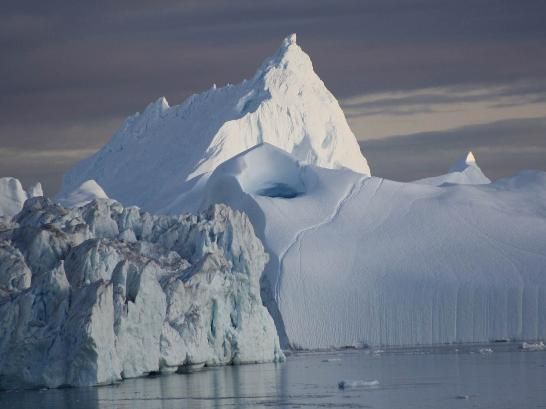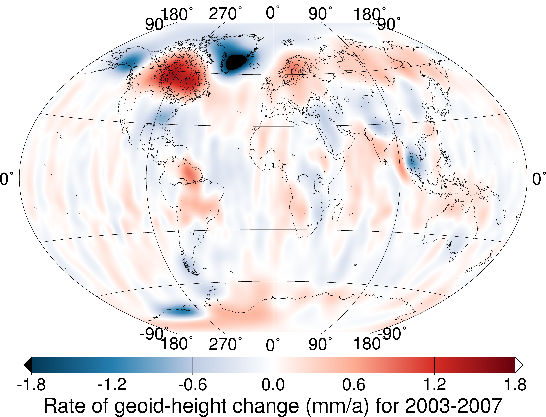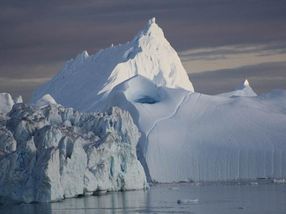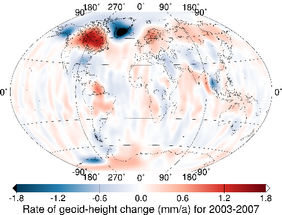Is the ice in Greenland in growing decline?
Accelerated loss of ice mass could be 'ice shield weather'
The time period of satellite observations of the ice sheets of Greenland and the Antarctic is still too short to be able to say whether the accelerated loss of ice measured today will persist in the future. This is the result published today in the online edition of "Nature Geosciences" by a research team led by Bert Wouters from the University of Bristol. The GFZ German Research Centre for Geosciences is also involved in the study. The researchers conclude that predictions of the contribution of both ice shields to the sea level up to the year 2100 may be more than 35 cm too high or too low.

Floating icebergs from Greenland’s largest glacier, Jakobshavn Isbrae. The smooth side indicates part of the iceberg that has already tipped over as sub-marine melting brought it out of balance.
© I.Sasgen, GFZ

Floating icebergs from Greenland’s largest glacier, Jakobshavn Isbrae. The smooth side indicates part of the iceberg that has already tipped over as sub-marine melting brought it out of balance.
© GFZ


The researchers analyzed nine years' worth of data from the gravity field satellite GRACE. The GRACE measurements showed that both ice sheets are losing significant amounts of ice - about 300 billion tons per year. At the same time, the rate at with which these losses occur is increasing: The contribution of both ice shields to sea level rise in recent years has almost doubled when compared to the first years of the GRACE mission. The causes of this accelerated reduction in ice mass are still a challenge for scientists: In addition to anthropogenic warming, the ice sheets are influenced by a variety of natural processes, such as variations in snowfall and slow changes in ocean currents.
In climatological terms, nine years are a very short period of observation. "It would be more prudent to speak of weather rather than climate," says Bert Wouters. "This 'ice sheet weather' can cloak long-term acceleration, or suggest an increase in the depletion of ice mass that could actually be compensated over a longer period", adds co-author Ingo Sasgen from GFZ. "The results highlight the need for a continuous monitoring of the ice sheets with satellites." In particular, deriving long-term trends of processes that interact with the climate from short observation data sets only have limited meaning. In order to improve the identification and prediction of the contribution of melting ice sheets to future sea level rise, the observation will be continued with the GRACE-Follow On mission from 2017 onwards.
Original publication
Other news from the department science

Get the chemical industry in your inbox
By submitting this form you agree that LUMITOS AG will send you the newsletter(s) selected above by email. Your data will not be passed on to third parties. Your data will be stored and processed in accordance with our data protection regulations. LUMITOS may contact you by email for the purpose of advertising or market and opinion surveys. You can revoke your consent at any time without giving reasons to LUMITOS AG, Ernst-Augustin-Str. 2, 12489 Berlin, Germany or by e-mail at revoke@lumitos.com with effect for the future. In addition, each email contains a link to unsubscribe from the corresponding newsletter.

























































